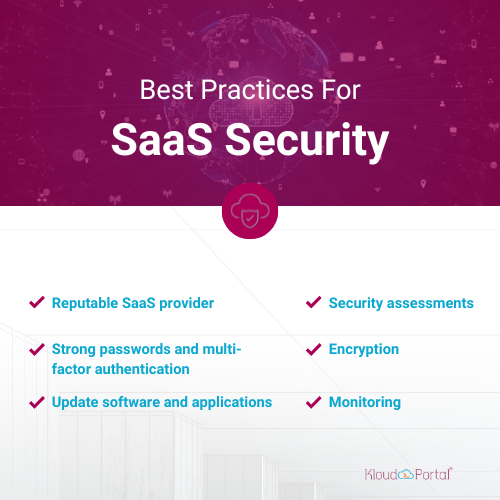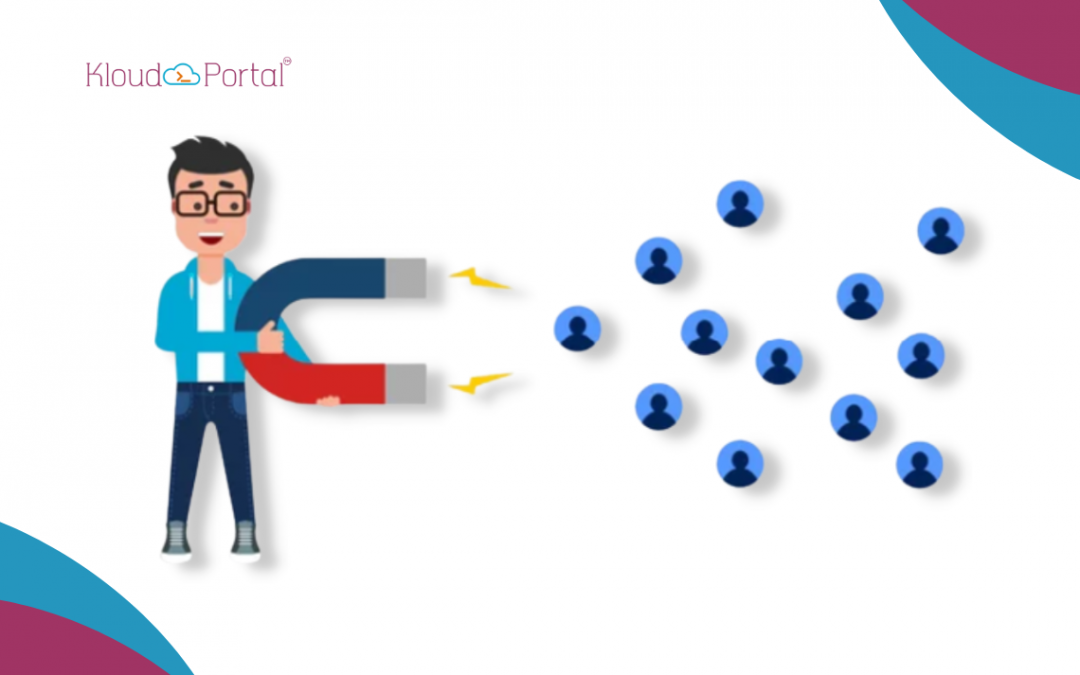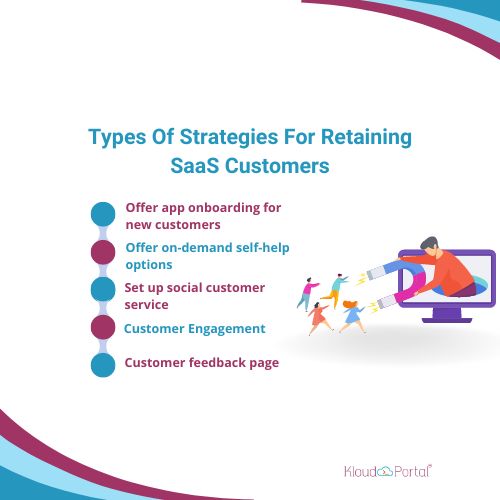
SaaS Security: Best Practices For Keeping Your Data Safe
SaaS developers must proactively track and protect data assets within their organization and across third-party services and implement appropriate SaaS security models to achieve this. KloudPortal, the best SaaS Product Marketing Agencies, offers a range of benefits, including cost savings, flexibility, and scalability. However, along with these benefits, potential security risks must be addressed to ensure the safety of the data.
What Is SaaS Security?
SaaS (Software as a Service) is a software distribution model where users subscribe to a service on a cloud infrastructure. One of the most important aspects of a SaaS service is the security service implemented to guarantee the privacy and safety of user data. With vast amounts of customer data being accessed, manipulated, and analyzed by SaaS companies daily, failure to implement security can directly impact the user experience.
A crucial responsibility for SaaS security professionals is to ensure the discovery, classification, tagging, mapping, and monitoring of all data, whether in transit, in use, or at rest. It includes identifying and safeguarding intellectual property and sensitive information collected in unmanaged data and cloud shadow IT and protecting them from unauthorized access, disclosure, or misuse.
Cloud Access Security Brokers (CASBs) are security solutions that mediate between an organization’s on-premise or cloud-based systems and public cloud service providers to enhance the security of data and applications accessed in the cloud.
A Cloud Access Security Broker must provide the safety measures implemented to safeguard SaaS applications and their users from cyber threats. While cloud providers bear responsibility for ensuring the security of their systems, it is also crucial for businesses using these services to take proactive measures to protect their data.
Best Practices For Keeping Your Data Safe In SaaS Applications
1. Choose a reputable SaaS provider
Choosing a reputable SaaS provider is the first step in ensuring the security of your data. Look for SaaS vendors with a proven track record of providing secure services and certifications such as ISO 27001, SOC 2, or PCI DSS.
It’s also important to carefully read the service provider’s privacy policy and terms to understand how they handle your data. Ensure they have clear policies on data encryption, privacy, retention, and access.
2. Implement strong passwords and multi-factor authentication
KloudPortal, the best B2B SaaS Product Marketing Agency follows best practices for keeping your data safe. Researching and vetting potential providers thoroughly is important to ensure they have a strong track record of precautions and compliance with industry standards. Opting for well-established and highly-rated providers can minimize the risk of data leaks or security lapses.
Weak passwords are one of the biggest security risks for any online account, even in SaaS applications. Implementing strong passwords and multi-factor authentication (MFA) can significantly reduce the risk of unauthorized access to your account.
3. Regularly update software and applications
Software updates often contain important network security patches that address vulnerabilities and protect against cyber threats. It’s important to regularly update your web applications and any other software you use.
Many SaaS product marketing companies automatically update their applications, but you should still check that the updates have been installed and are functioning correctly. Keep any other software you use up to date, including your operating system and web browser.
4. Use encryption for data online
Encryption is a technique used to transform data into an encoded form, which can be decoded only by individuals possessing the appropriate decryption key.
The majority of trustworthy vendors implement data encryption to safeguard data online. However, you can use external encryption tools to protect your data.
5. Conduct regular security assessments
Regular security assessments are crucial for identifying vulnerabilities in your cloud applications or other systems like access management. Such assessments can comprise penetration testing, vulnerability scanning, and risk assessments.
6. Monitor your systems for suspicious activity
Monitoring your systems for suspicious activity can help you detect and respond to cyber threats before they cause damage. The best SaaS Product Marketing Company offers built-in monitoring tools to help you identify unusual activity on your account.
You can also use third-party tools to monitor your systems, including intrusion detection systems (IDS) and security information and event management (SIEM) systems. These tools can help you detect and respond to potential security breaches in real-time.

Key Data Security Challenges That SaaS Applications Face
1. SaaS apps face security challenges from data breaches and unauthorized access. SaaS providers need strong security tools, like encryption and access controls, to prevent breaches and educate users on safe practices.
2. SaaS apps face data security challenges due to the need for control over stored customer data. Providers must ensure proper data governance and compliance measures to prevent data loss and unauthorized access.
3. Insufficient backup and recovery processes are a top data security challenge for cloud computing. Without proper backups, data loss can occur in a breach, system failure, or human error, resulting in irreparable damage to businesses.
4. Browser-based applications face compliance and regulatory challenges due to varying data protection laws across regions. Ensuring compliance requires a comprehensive understanding and adherence to local regulations, which can be complex and time-consuming.
5. Integrating the SaaS security model with other systems and applications can pose security best practices, such as vulnerabilities in third-party software or issues with data syncing. Proper testing and monitoring can help mitigate these risks.
6. Cloud software’s top data security challenge is weak password management and access control. Vendors must implement strong password policies, two-factor authentication, and access controls to prevent unauthorized access to sensitive user data.
7. Difficulty in tracking and monitoring data usage and access can lead to potential data exposure and unauthorized access. Cloud vendors should implement transparency and visibility measures, such as audit logs and access reports, to ensure users’ data is protected and compliant with regulations.
To mitigate these challenges, a SaaS Product Marketing Company must implement robust security protocols such as encryption, access controls, data backup and recovery plans, compliance monitoring, and regular security assessments.
Customers must also take responsibility for their data security by carefully selecting reputable SaaS vendors and implementing strong security best practices, such as using strong passwords and limiting access to sensitive data.
Conclusion
SaaS security is a critical aspect that should be taken seriously by businesses of all sizes. With the increasing use of cloud-based software, it is essential to implement best practices to keep data safe from potential threats such as hackers, malware, and data breaches.
By following the best practices outlined in this article, including using strong passwords, encrypting data, monitoring activity logs, and regularly updating software, organizations can minimize the risk of a security breach and safeguard their sensitive data.
Ultimately, take action to prioritize SaaS security and proactively communicate them to customers. KloudPortal is the best SaaS Product Marketing company that provides ultimate security with its distinguished list of products and services. Try us and secure your business with us.

Rasmita Patro
About The Author…
Meet Rasmita Patro, a content writer, a former teacher, and a former HR with a passion for storytelling, creating compelling content that engages and informs readers. She has a Master’s in Economics and an MBA degree in Human Resources. Her expertise spans a variety of industries, including finance, healthcare, technology, and others. She has a particular inclination toward crafting blog posts, articles, and social media content that resonates with the target audience. She loves reading different genres of books, love to experiment with cooking, and listening to soothing music.




